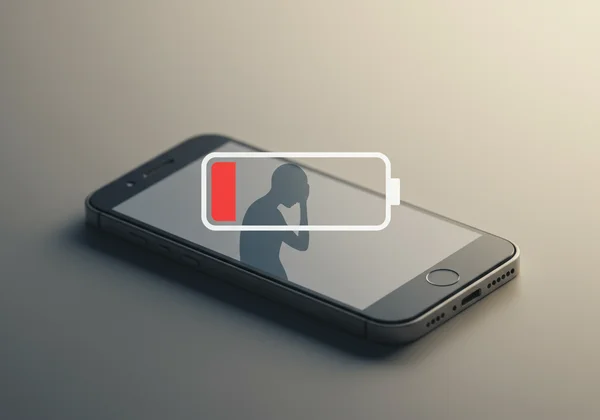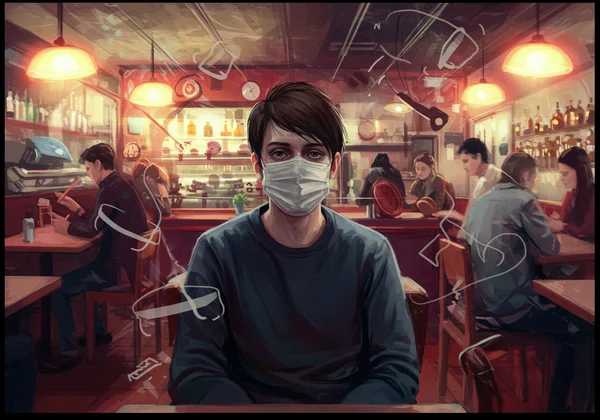AQテストと自閉症のソーシャルバッテリー:燃え尽き症候群と疲労の管理
November 13, 2025 | By Eliza Finch
他の人が楽に楽しんでいるように見える社交の場から帰った後、完全に疲れ果てていませんか? たった一度の外出から回復するのに数日かかることがありますか? もしこれに心当たりがあるなら、あなたは「自閉症のソーシャルバッテリー」の消耗を経験しているかもしれません。このガイドは、この概念が何を意味するのか、なぜ神経多様性のある個人に異なる影響を与えるのか、そして最も重要なこととして、ソーシャルな燃え尽き症候群を管理してエネルギーと幸福を取り戻す方法を探るためにあります。 自閉症のソーシャルバッテリー とは何であり、それを理解することがあなたの人生をどのように変えることができるでしょうか?
ソーシャルバッテリーの概念は自閉症のある個人に特有のものではありませんが、その消耗の速度と強度はしばしば異なります。多くの自閉症スペクトラムの人にとって、定型発達のコミュニケーションスタイルに合わせて作られた世界を渡り歩くには、絶え間ない集中的な精神的処理が必要です。これを理解することは、自己への思いやりと効果的なセルフケアへの第一歩です。自身のソーシャルパターンを理解しようとしているなら、より深い自己知識を得ることが重要です。あなたの 特性を理解する のに役立つツールを探索することから始めることができます。
自閉症のソーシャルバッテリーを理解する
あなたのソーシャルエネルギーをスマートフォンの充電残量だと考えてみてください。レジ係とのちょっとした会話から友人との予定された夕食まで、あらゆる交流がこの電源からエネルギーを消費します。定型発達の人は1日の始まりを100%で迎え、徐々に残量が減っていくのに対し、自閉症の人のバッテリーは、いくつかの根本的な要因により、はるかに速く、そして予測不能に消耗することがあります。

自閉症の個人にとって社交が異なる理由
社交は単に話すことだけではありません。非言語的な合図を解釈し、感覚入力を管理し、社会規範を意識的に実行する複雑なダンスです。これはしばしば マスキング と呼ばれ、個人が周囲に溶け込むために、定型発達者のように振る舞うことに多大なエネルギーを費やします。この絶え間ない演技は精神的に疲労困憊させます。
さらに、自閉症の人はしばしば 感覚処理 に違いを経験します。賑やかなカフェは、ただコーヒーを飲む場所ではありません。それは、重なり合う会話、食器の音、明るい光、強い匂いの猛攻です。会話をしながらこの感覚過負荷を処理することは、バッテリーを加速的に消耗させます。これらの環境に存在するだけでも、ましてや社交するとなると、膨大な認知的労力が必要です。

ソーシャルバッテリーが消耗するとどうなるか?
ソーシャルバッテリーが空になると、単に疲れている以上の状態になります。それは、肉体的、精神的、感情的に現れる可能性のある、深い疲労状態です。あなたは次のようなことを経験するかもしれません:
- 身体的疲労: 睡眠だけでは常に解決しない、ひどい疲労感。
- 思考力低下: 明確に考えること、言葉を見つけること、簡単な決断を下すことが困難になる。
- イライラの増加: 小さな不快感が圧倒的に感じられ、短気につながる。
- 感覚過敏の増大: 光がより明るく、音がより大きく、接触がより不快に感じられることがある。
- 孤独への切望: 充電のために、静かで刺激の少ない環境で一人になりたいという強い欲求。
これらの感情を個人的な失敗ではなく、体からの信号として認識することは、エネルギーを管理する上で重要なステップです。
自閉症のソーシャル燃え尽き症候群の兆候を認識する
ソーシャルバッテリーの限界を超えて一貫して無理をすると、 自閉症のバーンアウト の状態に陥るリスクがあります。これは、慢性的な疲労、スキルの喪失、および自閉症の特性の増加によって特徴付けられる深刻な状態です。それは、自分のリソースを超える要求に応えようとすることから蓄積されたストレスの結果です。初期兆候を見つけることを学ぶことは、本格的な燃え尽き症候群を防ぐのに役立ちます。

差し迫ったソーシャル疲労の早期警告信号
壁にぶつかる前に、あなたの体と心は警告信号を発します。これらの微妙な合図に注意を払うことで、バッテリーが完全に消耗する前に一歩引くことができます。これらの信号には以下が含まれます:
- スティミングへの依存の増加: そわそわしたり、体を揺らしたり、その他の自己鎮静行動をより頻繁に行っていることに気づくかもしれません。
- 発話の困難: 適切な言葉を見つけるのに苦労したり、話すことが流暢でなくなっていると感じたりするかもしれません。
- 趣味への興味の喪失: 通常喜びとエネルギーをもたらすあなたの特別な興味が、面倒に感じられるかもしれません。
- 身体的症状: 頭痛、胃の問題、筋肉の緊張はすべて、高まるストレスの兆候である可能性があります。
完全な自閉症の燃え尽き症候群:症状と日常生活への影響
警告サインを無視すると、完全な燃え尽き症候群の状態につながる可能性があります。これは単なる悪い週ではありません。数ヶ月、あるいは数年にわたって続く可能性のある衰弱状態です。症状はより深刻で、あなたの 社交的なエネルギー容量 と日常生活に大きな影響を与える可能性があります:
- スキルの喪失: 料理、家計管理、あるいは基本的なレベルでの社交など、かつて持っていた能力を一時的に失うことがあります。
- 極度の実行機能不全: 計画、整理、タスクの開始が不可能に感じられることがあります。
- 激しい社会的引きこもり: 苦痛であるか不可能であると感じるため、すべての社会的接触を避けるかもしれません。
- メルトダウンまたはシャットダウンの増加: 感情と感覚入力を調整する能力が著しく損なわれます。
これらの兆候を理解することは不可欠です。これらの説明に自分自身が当てはまると感じるなら、自分の特性をより深く探求する時かもしれません。無料のAQテストのようなアセスメントを受けることは、自己認識とより良い自己管理への旅の貴重な出発点となり得ます。初期の洞察を得るために 無料のAQテストを受ける ことができます。
ソーシャル疲労と回復を管理するための実践的な戦略
良いニュースは、ソーシャルバッテリーを効果的に管理する方法を学ぶことができるということです。それは、あなたの神経型に逆らうのではなく、それに合わせて働くことです。これには、事前計画、境界線の設定、効果的な充電ルーティンの開発が含まれます。 自閉症のソーシャルスキル を向上させることは、あなたが誰であるかを変えることではなく、あなたが必要とすることを主張する方法を学ぶことです。
エネルギーを守る:積極的なソーシャルプランニングとペース配分
予防は最も強力なツールです。疲労に反応するのではなく、事前に計画を立ててエネルギーを温存しましょう。
- 休息時間をスケジュールする: 回復時間を、必須の予定として扱いましょう。土曜日に社交イベントがあるなら、日曜日は静かに休む時間として確保します。
- 「スプーン理論」を使う: 毎日限られた数のスプーンから始まり、各タスクが1つ以上のスプーンを消費すると想像してください。スプーンを賢く予算化し、明日から借りないようにしましょう。
- 環境を選ぶ: より静かで、混雑していない場所を選びましょう。騒がしいバーの代わりに、公園での散歩を提案するなど。
健全な境界線を設定する:罪悪感なく「ノー」と言う
最も重要なスキルの1つは、「ノー」と言うことを学ぶことです。それは利己的なことではなく、自己保存に不可欠なことです。
- 丁寧に、しかしきっぱりと: 過度に説明する必要はありません。「お誘いありがとうございます。しかし、参加できません」というシンプルな言葉で十分です。
- 代替案を提案する: その人に会いたい場合は、自分のエネルギーレベルにより適したものを提案します。例えば、「長い夕食は無理ですが、来週静かなカフェでコーヒーを飲みたいです」など。
- 退場を計画する: イベントにどれくらい滞在するかを事前に決めましょう。早めに帰る許可を自分に与えることで、参加することへのプレッシャーが軽減されます。
バッテリーを充電する:効果的な回復テクニック
バッテリーが少なくなったら、充電する必要があります。充電方法は人それぞれですが、通常は外部からの刺激を減らし、心地よい活動に従事することを含みます。
- 特別な興味に没頭する: 情熱を傾けるプロジェクトに没頭することは、精神的なエネルギーを回復させる強力な方法です。
- 感覚的な落ち着き: 静かで暗い空間を作りましょう。重いブランケット、ノイズキャンセリングヘッドホン、または柔らかな照明を使用して、神経系を落ち着かせます。
- 意識的なスティミング: 判断されることなく自由にスティミングすることを自分に許しましょう。それは体が自己調整するための自然で効果的な方法です。

ニーズを伝える:あなたの社交能力を主張する
自己主張は鍵となります。あなたのことを気にかけてくれる人々も、あなたのニーズを理解していなければ、あなたをサポートすることはできません。
- バッテリーのたとえを使う: 「ソーシャルバッテリー」の比喩を使ってエネルギーレベルを説明することは、他の人があなたの経験を理解しやすい方法です。
- 具体的に伝える: 「疲れています」と言う代わりに、「バッテリーが少なくなる前に、約2時間の社交なら大丈夫です」のように言ってみましょう。
- 他者を教育する: 自閉症の経験を説明する記事やリソースを共有しましょう。これにより、より深い理解と共感が育まれます。
自分の限界とニーズを知ることは、自己知識から始まります。 当社のオンラインツール を通じてあなたの個人的な特性を深く掘り下げることで、効果的な自己主張に必要な明確さを得ることができます。
独自のソーシャルリズムを受け入れ、エネルギーを取り戻す
自閉症のソーシャルバッテリーを管理することは、自分自身を「修正」したり、より社交的になったりすることではありません。それは、あなた独自の神経的な特性を尊重し、あなたの幸福をサポートする生活を創造することです。エネルギーの限界を理解し、燃え尽き症候群の兆候を認識し、実践的な戦略を実行することで、疲労のサイクルから持続可能なエネルギーと本物のつながりの場所へと移行することができます。
あなたのソーシャルリズムを受け入れることは、エンパワーメントの行為です。それは、あなた自身の条件で世界と関わり、本当に大切な人々や活動のためにエネルギーを温存することを可能にします。あなたの自己発見の旅は続いており、自分自身をよりよく理解するために踏み出す一歩一歩が、より充実した人生への一歩となります。あなた独自のプロフィールについてもっと知る準備ができているなら、今日から 旅を始めてみませんか?
まとめ
「自閉症のソーシャルバッテリー」とは具体的に何ですか?
自閉症のソーシャルバッテリーとは、多くの自閉症の個人が経験する、社交に対する限られた容量を説明するために用いられる比喩です。社交における高い認知的および感覚的負荷のため、この「バッテリー」は定型発達の人よりもはるかに速く消耗し、充電にはかなりの休息時間が必要です。
自閉症のソーシャル燃え尽き症候群は、一般的な疲労とどう違うのですか?
一般的な疲労は通常休息で解消されますが、自閉症の燃え尽き症候群は、長期間のストレスとマスキングから生じる、より深刻な慢性的な疲弊状態です。それはしばしば、スキルの喪失、感覚過敏の増大、日常生活の要求に対処できないことを含み、回復には非常に長い時間がかかることがあります。
自閉症ではない人も「ソーシャルバッテリー」の消耗を経験しますか?
はい、誰でも、特に内向的な人は、ソーシャルバッテリーの消耗を経験することがあります。自閉症の個人における主な違いは、消耗の速度と強度、バッテリーが空になった際の(燃え尽き症候群を含む)結果の深刻さ、そして感覚過負荷やマスキングに伴う認知的労力といった、特定の根本的な理由にあります。
自閉症のソーシャル燃え尽き症候群を経験していると思われる場合、どうすればよいですか?
燃え尽き症候群の疑いがある場合、最も重要なステップは、自分への要求を大幅に減らし、休息を優先することです。これは、社交的な義務、仕事、家事から可能な限り距離を置くことを意味します。刺激の少ない環境を探し、回復を促す活動に取り組みましょう。また、自閉症に詳しい医療専門家に相談することを強くお勧めします。
Aqtest.org は、私のソーシャルエネルギーパターンをよりよく理解するのにどのように役立ちますか?
当社のプラットフォームは、あなたの特性の理解を助ける、科学的根拠に基づいた無料のAQテストを提供しています。診断ツールではありませんが、その結果とオプションのAI搭載パーソナライズレポートは、あなたが社交的な交流を異なる形で経験するかもしれない理由について、貴重な パーソナライズされた洞察 を提供することができます。この自己知識は、ソーシャルバッテリーを管理し、充実した生活を送るための効果的な戦略を開発するための基盤となります。